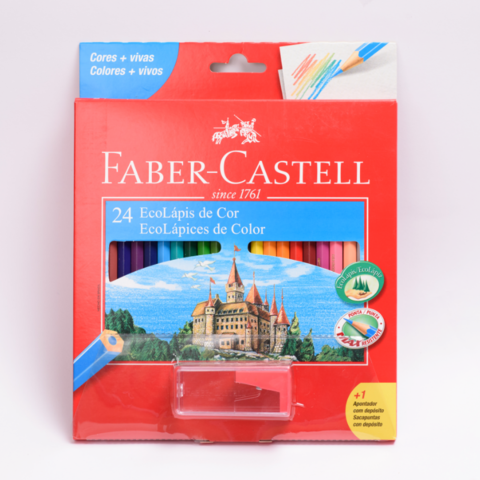Updated
You Faber Castell Jobs They enjoy numerous benefits, as the company is a leading manufacturer of high-quality writing, drawing, and design products and is always striving for creativity and innovation. Its history began in Germany in 1761, but it wasn't until 1930 that the company arrived in Brazil, where, in addition to administrative offices, it has three headquarters: São Paulo and São Carlos, Manaus in Amazonas, and Prata in Minas Gerais. In addition to being carbon-neutral, we are a leader in the cultivation of timber for the production of EcoLápis and have 9,600 hectares of plantations in Prata.

Learn how to apply for Faber Castell Jobs
To apply for a job at this company, the first step is to register in its database. To do so, click the following link:
Next, fill out your profile accurately with all your personal and professional information so the company can contact you. During the interview, be sure to greet the interviewer with a firm handshake. Look them in the eye, even if it's an online interview. Also, don't badmouth your previous or current boss, as this will be considered unethical. Also, avoid disclosing confidential information about the companies you currently or have worked for.
See also: Store Assistants, Service Promoters, Managers, Salespeople and more at Lojas MM
About Faber Castell
The company began as a small workshop in Germany, opened in 1761 by cabinetmaker Kaspar Faber. Despite the obvious associations with the profession, it's strange that the first Casper prototype wasn't made of wood, but of lead. After 23 years, the small business is now run by the heir and visionary of his time, Anton Wilhelm, who professionalized the brand with his surname and initials, becoming AW Faber.
Later, Anton William also realized that by investing part of the workshop's resources in other properties, he could accelerate production and increase profits in his town—a crucial decision that initially increased costs but accelerated growth in the long run. When the company took over from Georg Leonhard Faber, Germany was experiencing a continuous political and economic crisis from 1810 to 1838. Faced with this situation, Kaspar's grandson was unable to prevent a decline in production that threatened bankruptcy.
The untimely death of Georg Leonhard in 1839 led to the transfer of management of AW Faber to his son, Lothar von Faber, a young man of 22 at the time. Lothar needed solutions to keep the family business running. First, he decided to learn more about his business, so he traveled, gaining valuable experience and understanding how writing instrument companies operated in the capitals of England and France. After returning from AW to his home country, he established the vision for the company we know today. The company would no longer be just a studio, but a committed organization. His motto was: to achieve the highest status and produce the best products in the world.
Graduated in Literature – Portuguese/English, and creator of the website Successful Writer, seeks to expand everyone's knowledge with relevant information on a variety of topics, as a writer. At Vaga de Emprego RJ, she provides opportunities and tips on the job market.